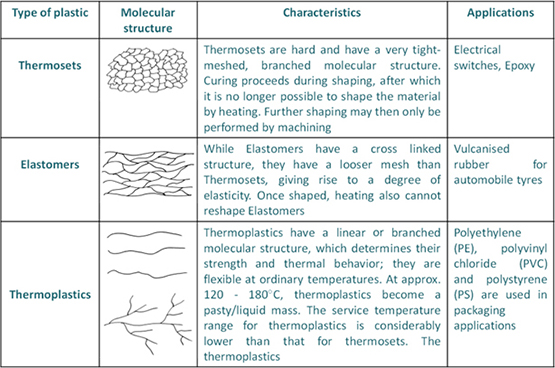Plastic material is synthetic or semi-synthetic organic solids that are moldable. Plastics are typicallyorganic polymers of high molecular mass, but they often contain other substances. They are usually synthetic, most commonly derived from petrochemicals, but many are partially natural.
150 million tons of plastic per year is being produced globally. In India, approximately 12 million tons plastic products are consumed every year (as on 2012). Its broad range of application is in packaging films, wrapping materials, shopping and garbage bags, fluid containers, clothing, toys, household and industrial products, and building materials.
Plastic waste generation an present scenario in India
The recycled plastics are more harmful to the environment than the virgin products due to mixing of colour, additives, stabilizers, flame retardants etc. Further, the recycling of a virgin plastic material can be done 2-3 time only, because, after every recycling, the strength of plastic material is reduced due to thermal degradation. In India, there is no specific rule for managing and monitoring of plastic waste recycling industries. Recyclers are using crude methods to thermally degrade the plastic which is causing serious hazards to health and environment.
India is being rated highest among all the countries for its recycling business. Plastic menace can be tackled only if a scietific and permanent solution can be found for its disposal. Plastic waste to roads and other construction materials is the feasible and scietific solution for plastic menace.

